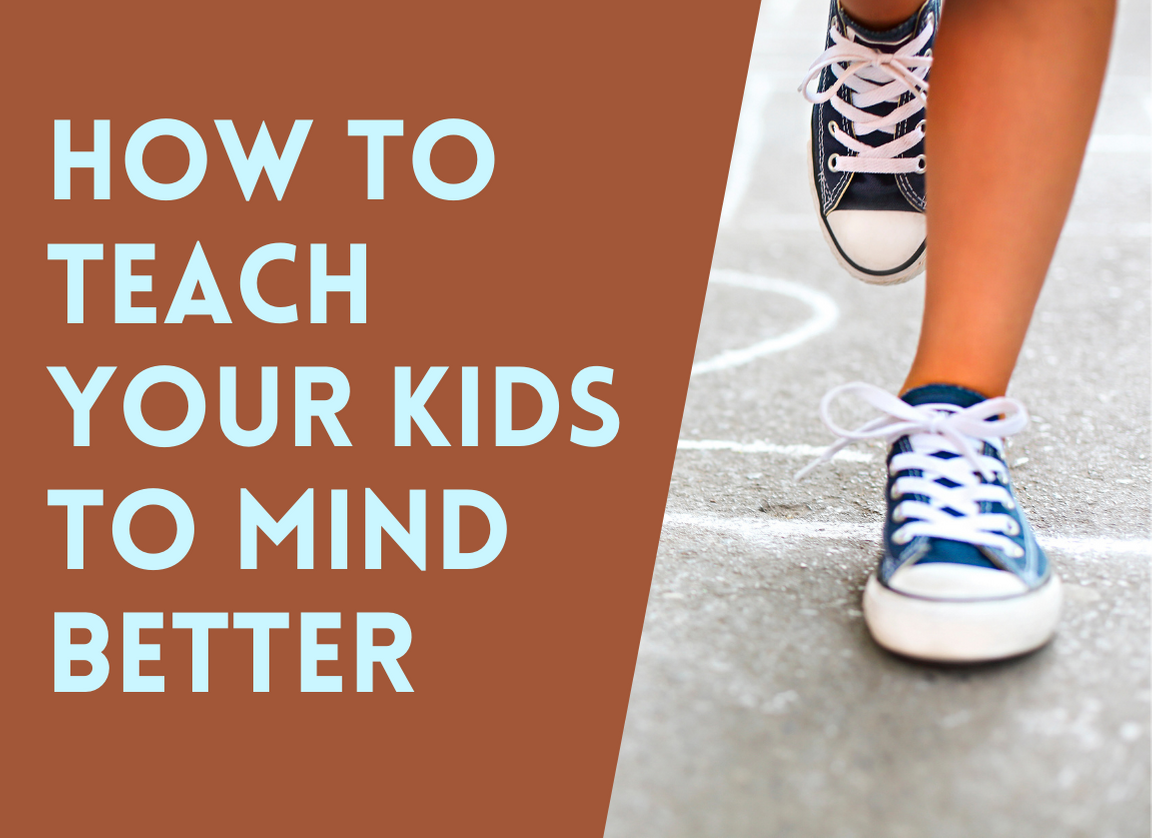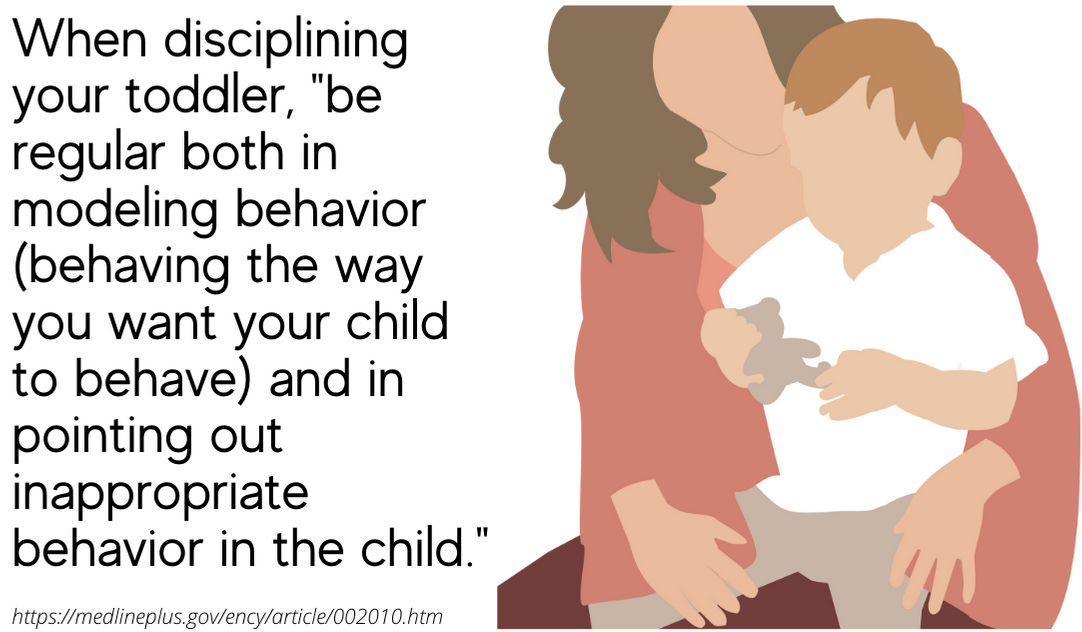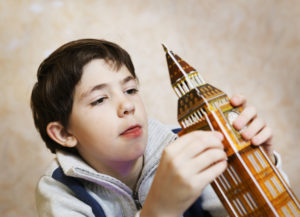As parents, helping our kids develop and practice the right social skills, like interacting with others politely, is undoubtedly one of the toughest jobs we have. In teaching our kids proper manners, we are instilling important values like respect and kindness—which the world needs today more than ever.
Everyone wants to raise children with a good moral foundation. It is our responsibility, as parents, to teach them important values and skills and mold them into becoming caring, responsible, healthy, and loving adults.
But how exactly can you do that?
Are you a first-time parent? The secret is to try and accept the trial-and-error method! Parenting is a challenging job! Plus, kids today are constantly exposed to several influences: from social media to the internet, to schools, to peers, and even to random strangers. Because children can soak and process everything independently, isolating the good from the bad influences has become even more challenging for parents.

Raising Kind, Respectful and Responsible Kids
Any parent would attest to this truth: teaching your kids the art of kindness, respect, and responsibility is easier said than done! Here are some ways experts say will work wonders.
Incorporate Fairy Tales When Teaching Children About Morals
For the longest time, storytelling has long been proven to be one of the greatest things that make us humans. Reading fairy tales, for example, will help your kids understand life lessons and positive messages in a fun and easy (though unconscious) manner. You can rely on the many literary heroes and make them a sort of role model for your kids, as these make a good moral compass.
The hero faces three stages in a typical fairy tale structure: the separation, the initiation, and finally, the return. The hero leaves home and faces the real world out of his comfort zone, struggles with the many challenges that come his way, learns some valuable things about himself and others before finally returning home. With this pattern, the story is vividly wrapped and relayed into an exciting and adventurous plot.
What’s great about fairy tales, though they are all fiction, is the moral lesson of each story. And even if there are different variations of the most famous storylines (like Snow White or Cinderella) across the globe, these stories are relayed so that they adapt to the specific values and cultural surroundings of a certain community. Meaning, somehow, we are all interconnected through these narratives that our children can learn from.
However, if your children are older, go for inspirational biographies. Try to encourage them to look for role models outside of the usual celebrity or modern pop star circles who aren’t good examples to kids.
Teach Your Kids Respect for the Elderly
Every child should learn, understand, and nurture respect for others. This is critical on the part of the parents, as your children will pick this from your behavior. How you treat your parents and spouse, the elderly, other members of the family, and even persons in authority, will reflect how your kids will develop respect.
As a parent, you need to be aware that your kids will observe and listen to practically anything you do. You need to have control over your behavior as much as you can. Never let frustration and anger show by yelling or by being violent because kids can easily adapt to this. Instead, when things get awry, try to nurture and incorporate assertive and healthy communication. Remember that what you’re doing here is helping your child sharpen their interpersonal skills.
As with respecting people in authority, whether it’s a police officer or a teacher, your child must understand that they should not fear nor feel oppressed by these people. Instead, teach them and explain to them that these people have to be respected because they have more wisdom and experience and deserve respect. When you do this, your child will understand that the world has a sort of a hierarchy system and that even if these people behind the system are not family, they still need to be respected.
Teach Your Kids to Help Around
A Piagetian Developmental Theory says that children will have to go through what they call the egocentrism phase at some point. At this stage, they do not have a full grasp of perspectives and opinions outside their own. Instead, they are more absorbed in their own needs, not minding the difference between their outer physical world and inner psychological world. They only expect that they get all the attention they want without giving any.
As parents, raising a compassionate child is important. The most effective way to achieve it is to show your children good practices and encourage them to help. Try assigning them tasks at home, although this will depend on your kid’s age. When children help you with the household chores, this helps them increase their independence. Simple tasks such as setting the dining table, feeding your cats, or fluffing your pillows, are enough to make your children feel capable.
Data from a Harvard Study of Adult Development research reveals that we become healthier and happier when we take part in at-home care. Humans have this inner instinct for lending a hand, and the study revealed that one of the keys to happiness is to build close relationships.
By allowing your kids to help, you teach them to understand the importance of giving support to someone in need. And during the process, your kids will have the chance to feel good about themselves. Those feelings of usefulness and self-pride are positive qualities that induce good deeds in the long run.
When you teach your kids to take part in home chores, no matter how simple those tasks may be, you are teaching them:
- The value of teamwork
- The significance of helping based on one’s capacities
- The satisfying feeling of self-accomplishment following a completed task
- The cause-effect relationship (e.g., if your child fails to tidy up after playtime, the room remains dirty, and they can’t enjoy their personal space as a result)
- The importance of setting aside one’s free time to do something productive.
Some parents prefer to incorporate the “rewarding” method. They give pennies to their kids every time a task is completed. However, be mindful if you plan to resort to this approach. If money (or a prize, for that matter) is introduced, your child might misconstrue this. In the future, he might expect to receive a reward after doing something. But you can turn this around instead to teach your children two more moral lessons: the importance of extending help to the less fortunate and the value of money. You can reward them with pennies but encourage them to save or share their “earnings.”
Teach Your Children That Honesty is the Best Policy (but not all the time).
One of the most complicated things every child needs to understand is knowing the difference between horrible deceits and white lies. Lying will always be part of adulthood because, ironic as it may seem, concealing the truth helps parties avoid conflict. However, this doesn’t mean that lying is normal; this is just a realistic point of view.
One psychology expert from Lancaster University maintains that lying will remain a critical social skill that children need to learn as they transition to adulthood. But this does not equate to encouraging your kids to lie. Instead, teach your children the difference between stating something obvious that may hurt the feelings of somebody (like body-shaming) and being honest with people–with one’s emotions and thoughts.
In teaching your kids not to lie, emphasize consequences they will face for their actions. Make them understand that such actions are punishable because they exhibit undesirable behavior. However, instead of simply giving them punishments and hoping they will learn their lessons well, you can try to do the following:
- Deconstruct their behaviors always through a dialogue
- Try asking them hypothetical questions to realize their mistakes (e.g., how would it make you feel if …?)
- Discuss the reasons why your child felt compelled to lie. Maybe they have underlying and deeper reasons for that, like fear.
- Talk about what would happen if they said the truth. Point out to your child that it is still okay to make mistakes and that making such mistakes will still be the better alternative than getting stuck in lies.
Kids these days are amazingly bright and very observant learners. This makes it even harder for parents to explain to them the significance of doing good. Teaching your kids to mind better is one of the best and simplest ways to instill proper values. There are so many ways to teach your children the right manners, but below are the most basic but important ones.
Use polite language.
Good manners start with the right foundation. And how do you achieve that? By using polite words and phrases. Teach your kids how to say please, excuse me, thank you, or you’re welcome. Although your kids won’t remember these words right away, you can set an example so your child will eventually begin to become polite without you nudging them from time to time.
Teach your children to greet the people they meet–and politely!
This is another important social skill that most parents often forget to teach their little ones. Your child must learn how to greet people properly. Emphasize eye contact, although this may seem awkward at first. But you can make it easier by telling your kid to look and see the eye color of the person. Also, your kids should learn how to respond to simple questions like “how are you?” You can try role-playing once in a while so your little one will feel confident when answering questions. This also ensures that your kid will not provide too many details about themselves.
Be careful with words.
Most, if not all, young children cannot filter the words that are and are not appropriate to say. Sometimes, this can lead to embarrassing situations. When your kids notice people who look different, they may make thoughtless comments. They may also carelessly announce how they hate the presents, or how they dislike the food they were given right in front of the very person who gave it.
Thankfully, as kids age, and with constant practice, they will eventually learn how to pause and think before they speak. Explain that sharing their thoughts is okay, but tactless comments are hurtful. Your kids should know that they can freely express their observations to you, as their parent, so they do not demean or embarrass other people.
Be a good guest.
Children will develop more manners as they grow older. For example, your child is expected to follow your rules, especially when you are at your friend’s house. Always be a polite guest. Show your child that you use polite language, that you clean up after yourself, and you thank your friends for inviting you over. Before you take your child out, it’s best to discuss these manners beforehand.
Patience, patience, and more patience.
It’s normal for kids to be very talkative. And for them to wait to speak, this feels like torture. When a kid has something in mind, it’s normal to express those thoughts immediately no matter what is going on around them, whether they be interrupting someone or distracting others. The challenge here for parents is to how to teach their kids the habit of waiting. While verbal reminders are important to achieve this, reinforcing the habit often fails. One effective approach is to try visual cues. You can use a toy or any object for this. Instead of snapping back when your kid talks without your go signal, try handing him the toy and say, “when I give you this toy, this is the time that you are allowed to talk.”
Teach the right table manners.
Every mealtime, especially when there are kids around, is often a challenge for most parents. With hungry kids around, perhaps the last thing you will have in mind is table etiquette. But never forget those table manners are social skills that every kid should learn. As young as three years old, kids should start learning proper table manners during mealtime.
You can start with the basics, and after some time, these things will become basic habits for the kids. Teach them to wash their hands before meals, put a table napkin on their lap, avoid talking when their mouth is full, say thank you and please, and clean the dishes from the table after eating.
Consistency, as they say, is key.
Teaching your kids proper manners will take some time. When they show good manners, praise them. When they don’t, point out the things that need correction. Remind them to use the right behavior or say the appropriate words, then move on. The goal here is to continue your teaching by example.

Childhood Behaviors: Understanding the Psychology Behind It
Everybody knows that childhood is the most critical period in our lives. Childhood is when your kids will start learning about behavioral patterns that will help them breeze through life later. Children will observe their parents and adults in their lives. They learn how to react to different situations through modeling correctly.
A child’s behavior is compared to their developmental stage they’re presently in. For instance, a two-year-old throwing a fit once in a while is considered a part of their development. But if the same tantrum episodes continue, say, up to 7 years old, this becomes a challenge for many parents. If left unattended, this can cause distress to many areas of the child’s life: school, home, friends, and even family members.
Unfortunately, many parents think those challenging behaviors are just part of being a “child.” Others are even hesitant to seek professional help believing that they can handle the “challenge” themselves. But challenging behaviors are unfavorable to a child’s development and learning because this can interfere both in his social and academic skills.
Research explains that a child’s behavior is classified into two categories: externalizing and internalizing.
Externalizing Behaviors
Children that manifest externalizing behaviors often have challenges that are unmanageable and uncontrollable. These kids are usually over-active, and most of the time, they display stubbornness, anger, lack of attention, disobedience, rule-breaking tendencies, and sometimes, they can become destructible. These behaviors are visible and overt to the people surrounding them. Because of the obvious manifestations, parents and teachers consider these behaviors as major concerns because these can disrupt the child’s routine at home and in school. Below are some of the diagnoses based on the symptoms of externalizing behaviors.
ADHD- Attention Deficit Hyperactivity Disorder. ADHD is common and can be seen during the first five years of a child. It can significantly impact the child’s learning ability, writing and reading skills, social skills, overall academic performance, relationships, social skills, and some more. To date, ADHD is the most diagnosed behavioral disorder among children. While the exact causes of this are unknown, studies and research are still ongoing.
ODD- Oppositional Defiant Disorder. The symptoms of this behavior often show between the ages of 5 and 10 and are characterized by disobedience, defiance, hostility to people in authority, and negativity. In severe cases, this disorder can affect the child’s relationship around him and may affect his regular functions at home, playtime, or school.
Conduct Disorder. In layman’s terms, this is called “anti-social” behavior. This includes violating societal norms or overstepping the rights of others thru aggressive actions that can harm others, cause damage to properties, deceitful behaviors, and serious violations. The most common example of this is bullying. The onset of this disorder may come both in childhood and adolescence based on the child’s environmental circumstances. This is very common in families with very poor parent-child relationships, low socioeconomic status, marital conflicts, or when one or both parents are previously diagnosed with a psychiatric condition like anti-social personality or alcoholism.
Internalizing Behaviors
Kids with internalizing behaviors often have issues with their moods and emotions. Because the signs of symptoms of these issues are not visible, the problem is often overlooked. When these behaviors are not seriously taken by the parents or the child’s teachers, early clinical attention is often neglected. Internalizing behaviors include different types of anxiety disorders, including School Refusal, Separation Anxiety Disorder, Generalized Anxiety Disorder, Social Phobia, and even depression.
As parents, your primary job is to look for the welfare of your kids. While you’re very keen on teaching them proper manners and the right behavior, it’s also important to be wary of any possible signs of behavioral issues so you can seek professional help.
4 Values to Teach Your Kids Before They Turn Five
Teaching manners and values to your child is of paramount importance. But many parents believe that doing so during the toddler or preschool years of their kids is somewhat premature. But that is completely a misconception. There are values that all children must develop and learn by the time they turn 5. Here are four important values to teach your kids during their toddler and preschool years.
Value Number 1: Honesty
To encourage honesty in your kids, you need to be an honest person yourself. You are your child’s model, and kids often take their cues from the parents. Thus, avoid any form of deception, no matter how innocuous one is. Simple things like “let’s not tell mommy we ate ice cream this morning,” no matter how harmless it sounds, are still a lie. Your child should see you truthful, be that with children or with adults.
Value Number 2: Justice
Teach your child how to make amends. Saying “I’m sorry” is very easy for a child and easily lets him off the hook without having to force him to think about what he is sorry about. The best way is to teach your child to make amends in a proactive way, which conveys a better and stronger message. If you think that your kid has done something bad, or has acted badly on somebody, try to help him think of a good way to compensate.
For example, maybe he can share his toy cars with his playmate whose toys your kid has damaged, or maybe he can draw a flower or something for his sister that he’s been teasing the whole day. If you encourage your child to do such gestures, you teach him the importance of treating the people around him fairly and properly—an important gesture that will help him one day in negotiating peer-group relationships.
Value Number 3. Determination
Determination is another value that you can teach your child, even if he’s still so young. The quickest way is to avoid making too many praises. Provide your child with honest to goodness feedback, relayed in a gentle and supportive passion. Another way is to push your kids to do things that do not easily come. And when they achieve it, praise them for their initiative.
For example, you can encourage your child to quietly approach another kid on the playground even though he feels scared or nervous. Or if you have a kid that easily gets upset, teach him helpful strategies (like counting to ten) so he will know how to hold back his temper. When kids achieve these small but helpful “missions,” congratulate them.
Value Number 4: Love
Parents believe that children are affectionate and naturally loving. This is true. However, for love to last, it has to be reciprocated. Allow your child to see how you demonstrate your affection and love for the people you value in your life. Hug and kiss your spouse when the kids are around. Share with your children how much you appreciate and love your grannies, your uncles, and aunts, your cousins. Most of all, never let a day go by without showing your love for your child himself.
There are so many ways to demonstrate love to a toddler! You can try adding a small note in their lunch box, taping a heart to their bathroom mirror, or giving them more candies and treats than usual. Hug your kid for no reason! Simple yet meaningful gestures like these will not only teach your kids how to be affectionate; this also gives them a more solid sense of security.
Teaching your kids to mind better is a challenge. But with constant guidance and the sheer determination to mold them into the best versions of themselves, seeing them grow up responsible and with good morals is any parent’s ultimate achievement!








